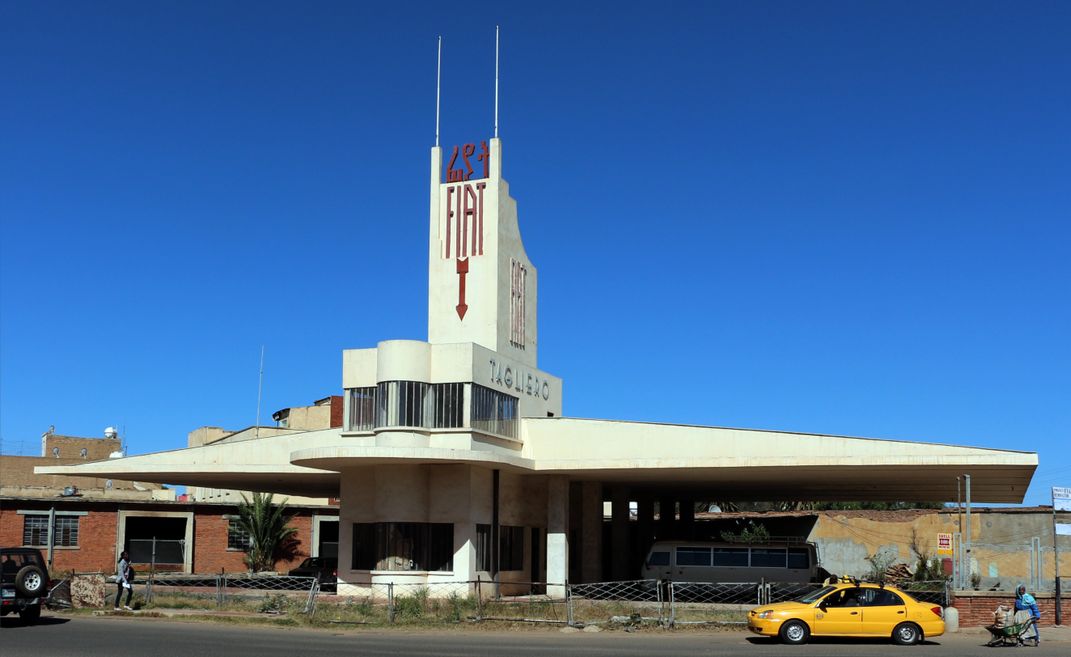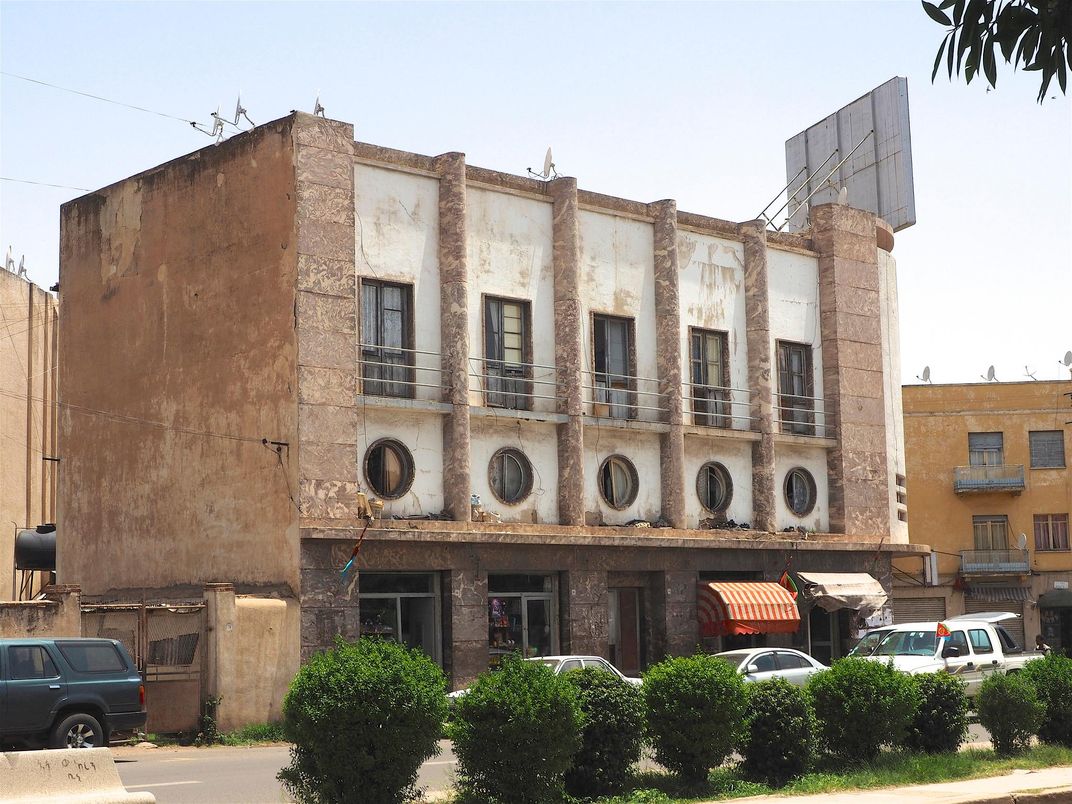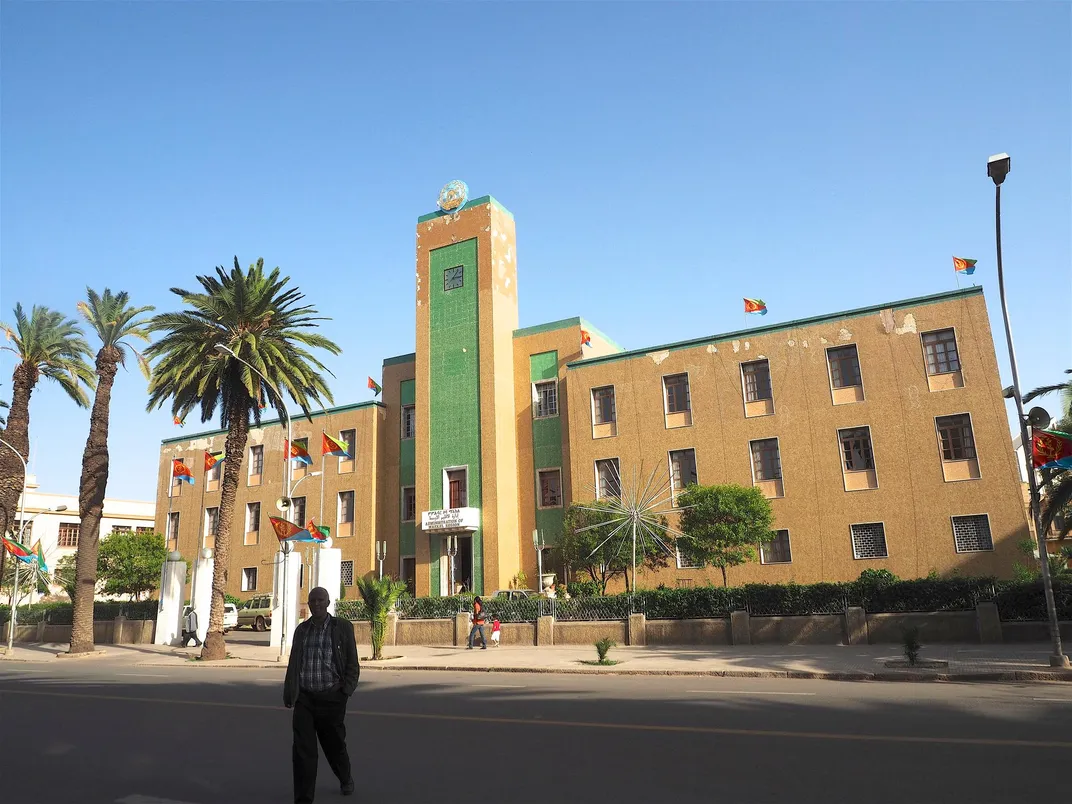Asmara, the Capital of Eritrea, Named World Heritage Site
Eritrean officials lobbied for the designation in a bid to reform their country’s isolationist image
Eritrea, a reclusive and authoritarian nation, is sometimes referred to as “Africa’s North Korea.” But the country’s capital city, Asmara, has been dubbed “Africa’s Miami,” due to its rich array of Art Deco buildings. As Tom Gardner reports for Quartz, Asmara was recently named a Unesco World Heritage Site—and many Eritreans hope the designation will help foster a more positive image of their country.
Asmara is rife with 19th and early 20th century modernist architecture, built while the Italians colonized Eritrea. The country “became a paradise for Italian architects, who could try out their boldest ideas there, away from Europe’s conservative cultural norms,” Kimiko de Freytas-Tamura writes for the New York Times.
Among Asmara’s more remarkable structures is an Art Deco bowling alley, a building designed in the shape of an old radio set, and a service station shaped like an airplane.
But relatively few foreigners have seen the city’s beautiful and unique architecture. Eritrea is one of the most isolated countries in the world, by design. As Gardner writes, there are no international hotels in Eritrea’s capital city, and tourists are required to obtain permits to travel around much of the country. In a Times article published in February, Joshua Hammer reported that fewer than 1,000 tourists visited Eritrea in 2015.
Eritrea once was considered one of "the continent's brightest hopes," Hammer wrote for the Times. But its reputation has been blighted by, "two decades of repression, international isolation and a forced military conscription program that has driven hundreds of thousands of young people out of the country."
Eritrea has also been shunned by the international community. Citing Eritrea’s support of armed groups in Somalia, the United Nations imposed sanctions on the country in 2009. A U.N. commission found last year that Eritrean officials have “committed crimes against humanity, including enslavement, rape and torture, across the country over the past 25 years.”
But the Eritrean government is hoping to turn the country’s reputation around, and officials lobbied hard for Asmara’s inclusion as a World Heritage site. “For some time the government has been seeking international recognition in whatever forums are available,” Dan Connell, a visiting scholar at Boston University’s African Studies Centre, told Gardner.
Government critics say that Eritrea lacks the resources to maintain its historic buildings. And it is not entirely clear if Eritrea intends to take full advantage of Unesco's decision. According to Gardner, no foreign press were invited to report on the celebrations marking Asmara’s new status.


